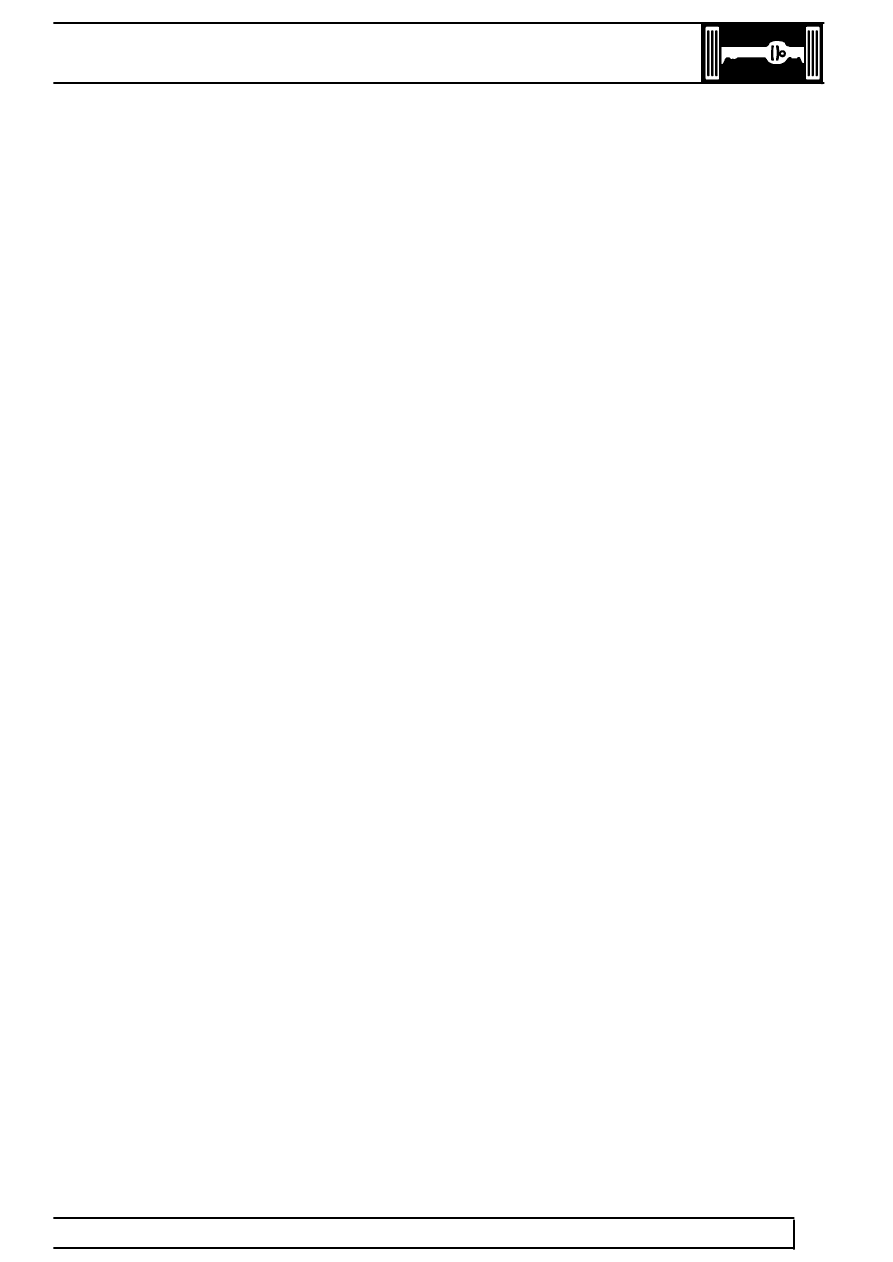Range Rover P38

REAR AXLE AND FINAL DRIVE
3
REPAIR
Refit
20. With assistance, position axle and align
suspension units.
21. Raise axle up to trailing arms.
22. Secure axle to trailing arms with nuts and bolts.
M16 with 8.8 strength grade - Tighten to
160 Nm (118 lbf.ft),
M16 with 10.9 strength grade - Tighten to
240 Nm (177 lbf.ft),
M12 - Tighten to
125 Nm (92 lbf.ft)
23. Remove safety stands. Lower vehicle.
24. Tighten bolts securing trailing arms to chassis.
Tighten to
160 Nm. (118 lbf.ft)
25. Retain air springs with ’R’ clips.
26. Secure height sensors to trailing arms.
27. Position shock absorbers on axle. Secure with
nuts. Tighten to
45 Nm. (33 lbf.ft)
28. Ensure all pipes and connections are clean.
29. Using new sealing washers, connect breather
hose to axle with banjo bolt.
30. Secure hose to axle with strap.
Up to 97MY:
31. Position brake pipes to body bracket. Remove
plugs. Connect pipes.
32. Secure pipes with clips.
33. Connect ABS sensor multiplug. Secure multiplug
to body bracket. Secure lead to body clips.
From 97MY:
34. At LH and RH ends of axle, locate brake hose in
chassis rail lower bracket and secure with clip.
Remove plugs and connect brake pipe to brake
hose.
35. At LH and RH ends of axle, connect ABS sensor
multiplug and secure to chassis rail upper
bracket. Secure ABS sensor lead to chassis rail
lower bracket. Ensure ABS sensor lead is
retained in clips on brake hose.
All models:
36. Position panhard rod to axle. Secure with bolt.
Tighten to
200 Nm. (148 lbf.ft)
37. Position propeller shaft. Align marks on flanges.
38. Secure shaft with bolts and new nuts. Tighten to
48 Nm (35 lbf.ft)
39. Replenish axle oil.
See LUBRICANTS, FLUIDS
AND CAPACITIES, Information.
40. Bleed brakes.
See BRAKES, Repair.
